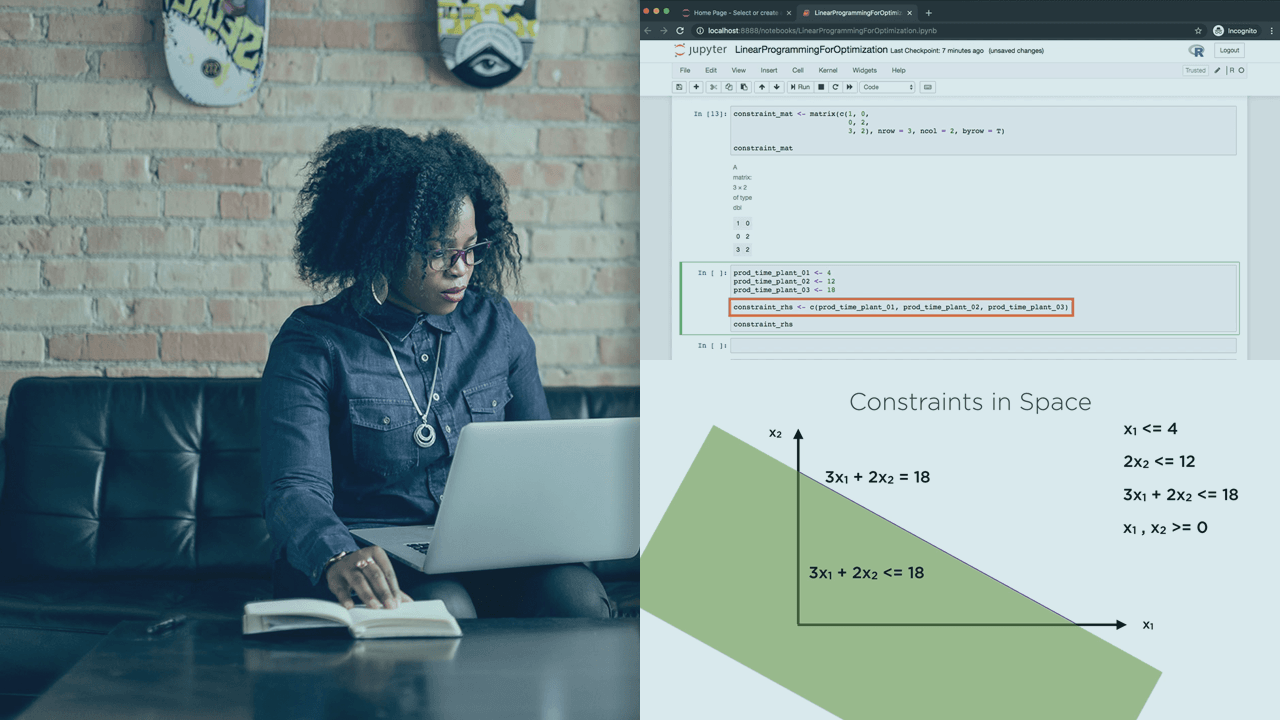
Moocable is learner-supported. When you buy through links on our site, we may earn an affiliate commission.
Description
Learn how to fit, interpret, and compare linear regression models in Python.
In this course, you'll learn how to fit, interpret, and compare linear regression models in Python. This is useful for research questions such as:
- Can I predict how much a customer will spend at a store based on attributes such as age, income, and location?
- What is the relationship between a person's income and other attributes such as education level and years of experience?
This course requires some prior experience with Python, including experience with Pandas and basic data manipulation, summary statistics, and hypothesis testing.
Tags
Syllabus
- Simple Linear Regression: Learn how to fit and interpret a simple linear regression model.
- Lesson: Introduction to Linear Regression
- Article: Linear Regression with a Categorical Predictor
- Quiz: Simple Linear Regression
- Project: Linear Regression at Codecademy
- Multiple Linear Regression: Learn how to build and interpret linear regression models with more than one predictor.
- Lesson: Multiple Linear Regression
- Article: Matrix Representation of Linear Regression
- Lesson: Interactions and Polynomial Terms
- Article: Log Transformations (And More)
- Quiz: Multiple Linear Regression
- Project: Algerian Forest Fires
- Choosing a Linear Regression Model: Learn how to choose the best linear regression model for a particular research question.
- Lesson: Choosing a Linear Regression Model
- Quiz: Choosing a Linear Regression Model
- Project: Craigslist Analysis
- Linear Regression Implementation: Learn about the differences between scikit-learn and statsmodels with respect to fitting linear regression models.
- Article: Linear Models in scikit-learn vs. statsmodels

-
TypeOnline Courses
-
ProviderCodecademy
Learn how to fit, interpret, and compare linear regression models in Python.
In this course, you'll learn how to fit, interpret, and compare linear regression models in Python. This is useful for research questions such as:
- Can I predict how much a customer will spend at a store based on attributes such as age, income, and location?
- What is the relationship between a person's income and other attributes such as education level and years of experience?
This course requires some prior experience with Python, including experience with Pandas and basic data manipulation, summary statistics, and hypothesis testing.
In this course, you'll learn how to fit, interpret, and compare linear regression models in Python. This is useful for research questions such as:
- Can I predict how much a customer will spend at a store based on attributes such as age, income, and location?
- What is the relationship between a person's income and other attributes such as education level and years of experience?
This course requires some prior experience with Python, including experience with Pandas and basic data manipulation, summary statistics, and hypothesis testing.
- Simple Linear Regression: Learn how to fit and interpret a simple linear regression model.
- Lesson: Introduction to Linear Regression
- Article: Linear Regression with a Categorical Predictor
- Quiz: Simple Linear Regression
- Project: Linear Regression at Codecademy
- Multiple Linear Regression: Learn how to build and interpret linear regression models with more than one predictor.
- Lesson: Multiple Linear Regression
- Article: Matrix Representation of Linear Regression
- Lesson: Interactions and Polynomial Terms
- Article: Log Transformations (And More)
- Quiz: Multiple Linear Regression
- Project: Algerian Forest Fires
- Choosing a Linear Regression Model: Learn how to choose the best linear regression model for a particular research question.
- Lesson: Choosing a Linear Regression Model
- Quiz: Choosing a Linear Regression Model
- Project: Craigslist Analysis
- Linear Regression Implementation: Learn about the differences between scikit-learn and statsmodels with respect to fitting linear regression models.
- Article: Linear Models in scikit-learn vs. statsmodels
Tags
Related Courses


Practical Approaching to Computational Algebra

Machine Learning Algorithms

Introduction to Differential Equations

Essential Math for Machine Learning: R Edition

Geometry II

ELM: CSU Math Study Guide

Solving Problems with Numerical Methods

Game Development Foundations: Game-Related Math

ISEE Lower Level: Practice & Study Guide

OSAT Elementary Education (CEOE) (150/151): Practice & Study Guide

Introduction to Probability and Data - Labs
Loading...
Saving...
Loading...

 Online Courses
Online Courses  Codecademy
Codecademy
